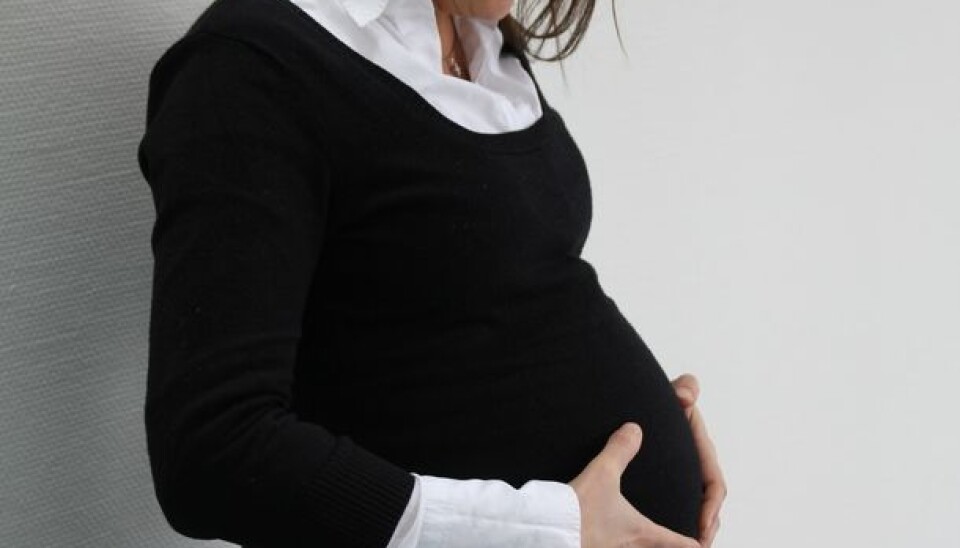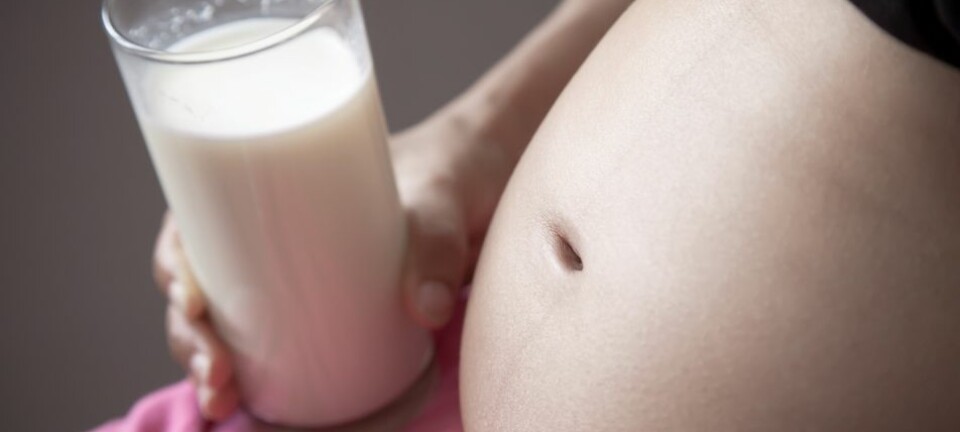An article from The National Institute of Nutrition and Seafood Research (NIFES)

Seafood may prevent postpartum depression
A high level of marine omega-3 fatty acids in the blood in the final stages of pregnancy can reduce the risk of postpartum depression.
Denne artikkelen er over ti år gammel og kan inneholde utdatert informasjon.
In a recently published study levels of the omega-3 fatty acids EPA and DHA in the blood of women in their 28th week of pregnancy were measured. Three months after giving birth, the mothers completed a form to assess their level of depressive symptoms.
“We saw that women with low levels of omega-3 during pregnancy, had more symptoms of postpartum depression, which suggests that seafood can help to prevent this mental health challenge” says Director of Research Ingvild Eide Graff at NIFES.
Postpartum depression affects 10 – 15 per cent of Norwegian mothers, and can influence the mothers’ sensitivity and emotional engagement during early mother-infant interactions, which in turn may affect early social development in infants.
The Edinburgh Postnatal Depression Scale was used to assess the mothers’ level of depressive symptoms. This is a screening instrument where the women are asked about their depressive feelings during the last seven days.
“It is important to emphasise that none of the participants was clinically depressed, although those with the highest scores could be in the danger zone for development of postpartum depression” says Graff.
Seafood is important during pregnancy
Seafood contains a unique combination of nutrients not present in lots of other foods, including marine omega-3 fatty acids, vitamin D, iodine, and high-quality proteins. The marine omega-3 fatty acid DHA is particularly important during pregnancy.
DHA plays an important role in the growth, development and structure of the foetus brain, and the foetus will drain the mother’s store of marine fatty acids if she does not take care to replace them. Consumption of both oily and lean seafood is therefore of particular importance for pregnant women.
“None of the participants in the study were provided specific meals, but on average, they ate seafood for dinner once a week, in addition to seafood as spread,” says Graff. However, the level of seafood consumption varied greatly. Some of the participants consumed very little seafood, while others had seafood several times a week.
In order to examine the relationship between marine omega-3 fatty acids in the blood and symptoms of depression, the present study utilised an index that usually evaluates the extent to which omega-3 levels protect against cardiovascular disease. It has been estimated that an index of 8 per cent offers good protection against cardiovascular disease, while anything below four per cent is an indication of poor protection.
“This study found a similar relationship between this index and symptoms of depression. In other words, that mothers with an omega-3 index lower than five had more symptoms of depression than others.
Both oily and lean seafood contain marine omega-3
Both oily and lean seafood provide the body with marine omega-3 fatty acids. Previous research has shown that pregnant women and women of child-bearing age eat little seafood.
“In many cases, it would not take much effort to improve these women’s omega-3 status. A small increase in the quantity of seafood in their diet is better than nothing, whether it is eaten as dinner or as spread. This may have an impact on prevention of postpartum depression” says Graff.
The study was carried out on women from Fjell Municipality, west of Bergen, and was led by the Regional Centre for Child and Youth Mental Health and Child Welfare (RKBU West, Uni Health/Uni Research) in collaboration with NIFES.
The project focused on the effects of diet on mental health and infant development during the first year of life.
-------------------------
Read the Norwegian version of this article at forskning.no


































